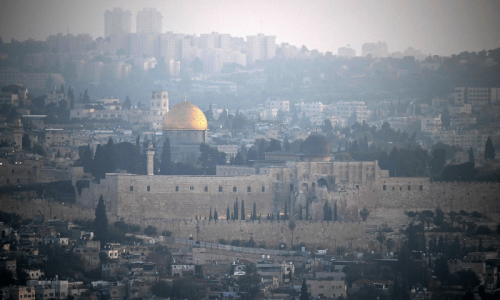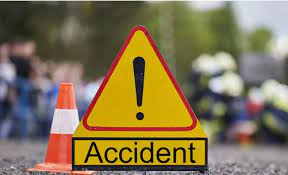Shops open on alternate days, schools shut — states want to phase out lockdown after 14 April
New Delhi: From opening shops on alternate days, keeping schools, colleges and hostels closed, to resuming transport services with reduced intake, states across the country are looking at different strategies to contain the spread of the coronavirus after the 21-day nationwide lockdown ends on 14 April.
The states also want to keep cinema halls and malls shut and allow only select offices, factories and services to function. But all of them are unanimous on one aspect — they do not want the lockdown to be lifted completely after 14 April.
Be it the worst-affected or those with only a handful of Covid-19 cases, states want restrictions in varying degrees as they fear crowding of public spaces could end up negating whatever gains they have made during the lockdown.
Restrictions to continue in worst-affected states
The first Covid-19 case was reported in Kerala on 30 January, and since then the cases have only spiked. As on Monday, the state reported a total of 327 cases, including two deaths.
Some of the worst-affected districts, the so-called hotspots, are in Kasargod, Kannur and Malappuram.
Tom Jose, the Kerala chief secretary, told ThePrint that though a final call is yet to be taken on the state’s strategy after 14 April, there is a general agreement that a fair amount of restrictions will continue.
“Transport services with reduced intake, limited trade, some shops could be allowed to function allowing reasonable economic activity,” Jose said, while reiterating that it’s still too early to decide the state’s strategy.
“This week is going to be very crucial. It’s only after we see how the state is faring that a final call will be taken,” the chief secretary said. “However, one thing is clear that districts like Kasargod will continue to have a stringent lockdown in place. Some clusters here have been completely ring-fenced, which is likely to continue after 14 April.”
Maharashtra, which with 868 cases, including 45 deaths, has the highest number of Covid-19 positive cases in India, will also look at a very calibrated lifting of lockdown.
“Urban pockets like Mumbai, where cases continue to rise and Pune could see an extension of lockdown. However, areas where fewer or no new cases have been reported, which are mostly in rural areas, could see more relaxation to allow agricultural activities to resume,” said a senior official in the Maharashtra government.
Tamil Nadu, which has registered a total of 626 cases including six deaths — the second highest number of cases after Maharashtra — is in all likelihood going to extend the imposition of Section 144 until April 30. Section 144 prohibits the assembly of four or more people in an area. It also prohibits opening of educational institutions.
A senior official in the state’s health department, who did not want to be named, said, “We are yet to give our suggestion to the Centre. But there is near unanimity that Section 144 needs to be extended beyond 14 April as cases continue to rise rapidly.”
Even Delhi, which has 525 cases and seven deaths, could see a continuation of most of the restrictions. Although the Delhi government is yet to give its suggestion to the Centre, an official who did not want to be named said, “To avoid Covid-19 cases from surging in the Capital, there is a thinking that closure of schools and colleges, cinema halls and malls in the city will continue beyond 14 April.”
A final call, however, will be taken after reviewing the situation at the end of the week, a second government official added.
Partial lockdown in northern states
Punjab special chief secretary K.B.S. Sindhu said the state too is looking at a very calibrated approach. “There could be a partial lockdown. We are considering allowing shops to open on alternate days,” he said. “Primary schools could remain closed. Factories could be allowed to open with reduced shifts, while ensuring that social distancing is strictly followed.”
Sidhu, however, said there could be more easing of restrictions in rural areas where not many cases have been reported. “This is the wheat harvest season. We are considering partial relaxation to allow agricultural activities to continue,” he said.
Punjab has reported 90 cases so far, including eight deaths. The state has a large number of NRI visitors who were the primary source of the infection.
Rajasthan, which has become a model for effectively containing the spread of Covid-19 after its success in Bhilwara, also wants a graded extension of the lock down.
Chief Minister Ashok Gehlot said in a press conference Tuesday that though both the Centre and state are working in tandem to ensure containment, it’s the states that will have to take a final call depending on the ground situation. “It can’t be a uniform strategy for all states,” Gehlot said.
Even BJP-ruled Uttar Pradesh is not in favour of lifting the lockdown after 14 April. Awanish Awasthi, additional secretary (Home), indicated as much in a media briefing Monday. Awasthi said the state needs a rethink on lifting the lockdown.
Uttar Pradesh is among the 10 states that account for 30 per cent of the overall 4,421 Covid-19 cases in India. There have been 308 positive cases in the state, including 22 deaths.
Similar story in the South
Andhra Pradesh is another state that has seen COVID-19 cases touch the 300 mark. Until Monday, there have been 300 cases, including six deaths, in the state.
A senior official in AP health department told ThePrint that the state will go for a graded exit. “We are breaking down areas into parcels, depending on the number of cases. The thinking in the government is that areas with a high number of cases will continue to be under lockdown while parcels with no new cases or where fewer numbers of cases are there could see gradual opening of some sectors in the first fortnight followed by more in next week and so on,” the official added.
In Karnataka, a panel of health experts advising the government on the exit plan has recommended a staggered approach. While the panel is expected to submit its report in the next three days, it has decided to suggest continued closure of schools, colleges, restaurants and hotels, especially in hotspots such as Bengaluru, Mysuru and Kalburgi among others.
Karnataka has 151 cases with four deaths.
Telangana Chief Minister K. Chandrashekhar Rao is among those who wants the lockdown to continue. He had conveyed this in his video- conference meeting with Prime Minister Narendra Modi.
“In any war, the retreat is more important and crucial than advancing. Once the lockdown period is over, the retreat should be systematically done,” said a senior official from the Telangana CMO. “You cannot just open all the gates at once. It will surely be done in a phased manner.”
The state has 321 cases with seven deaths.
THE PRINT






